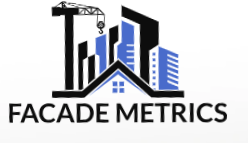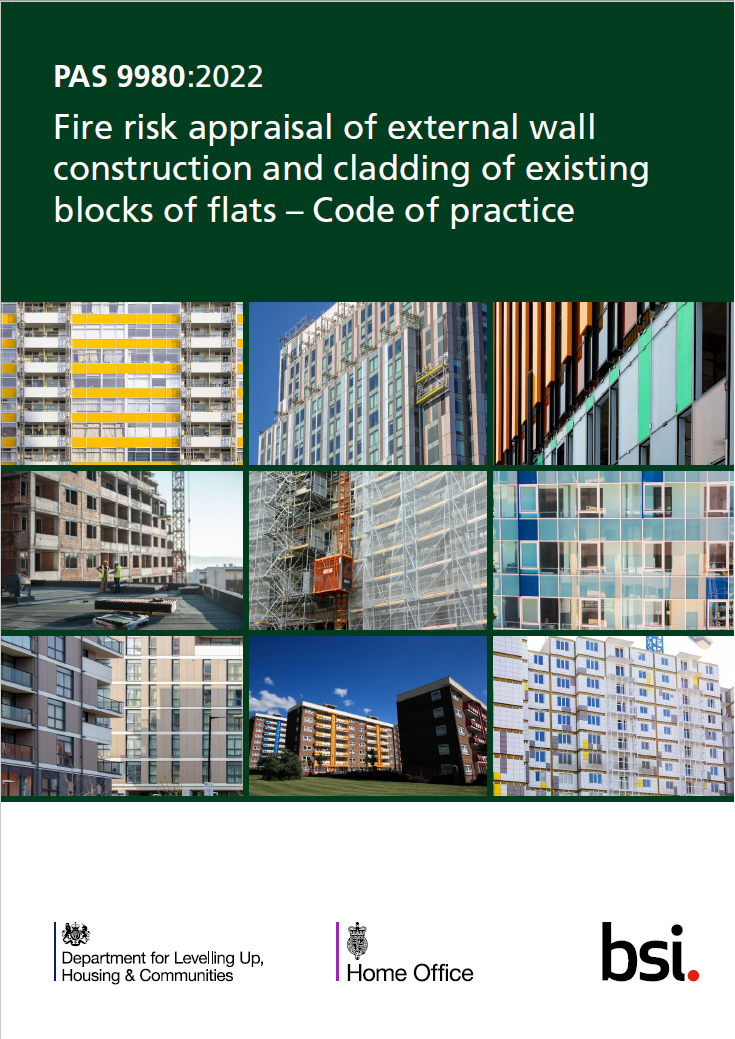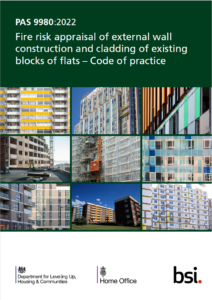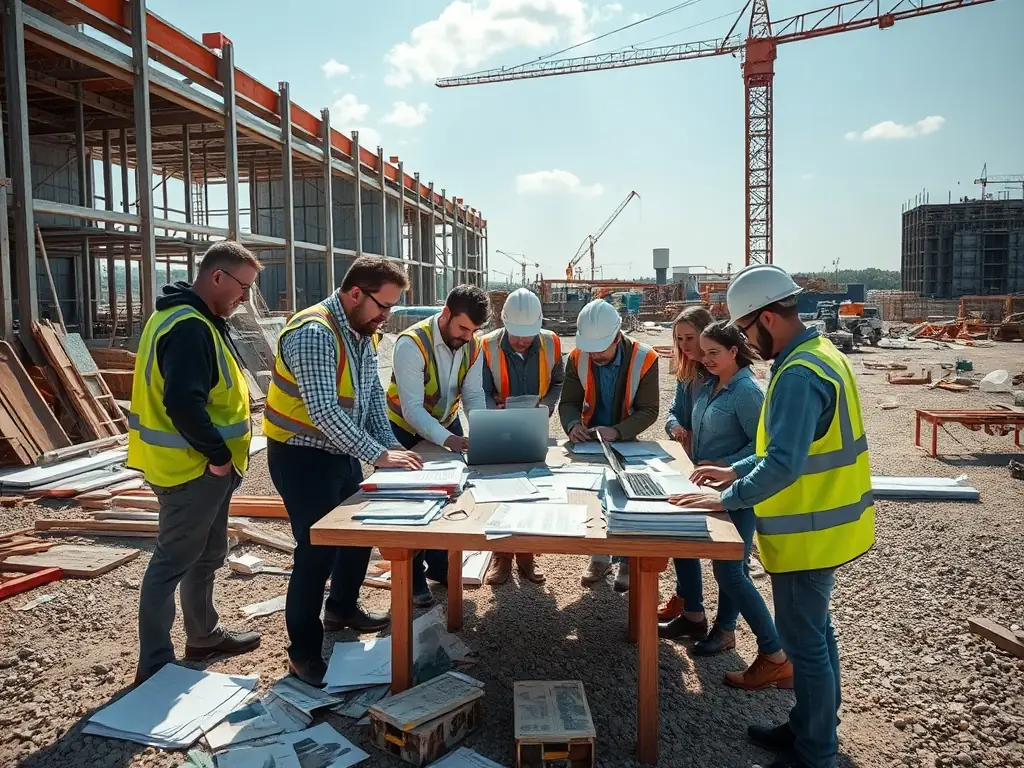10 Reasons you should hire a consultant like Facade Metrics to run the Pre-Construction Services Agreement (PCSA) process for fire remediation schemes, particularly in the context of PAS 9980, Planning, fire engineering, and design, offers several benefits. Here are the advantages:
1. Expertise in PAS 9980 Fire Risk Assessments
PAS 9980 provides a framework for assessing the fire risk of external wall systems in existing multi-storey, multi-occupied residential buildings. A consultant specializing in this standard will have:
- In-depth knowledge of PAS 9980: Ensuring that the fire risk assessment process adheres to industry standards and best practices.
- Understanding of compliance requirements: Assisting in navigating complex regulations related to fire safety in building refurbishment projects.
- Technical insights: Offering expert advice on assessing external wall systems, including cladding, insulation, and fire barriers, to determine necessary remediation.
2. Improved Project Planning & Coordination
A consultant can oversee the PCSA process, coordinating between various stakeholders such as fire engineers, designers, contractors, and local planning authorities. This ensures:
- Clear communication: Between design teams, fire engineers, and planners, reducing the risk of misunderstandings and delays.
- Streamlined decision-making: With a consultant taking the lead, decisions are made more efficiently, ensuring that all parties are aligned and working towards the same goals.
- Cost and risk management: Consultants help manage and mitigate risks early in the planning stages, which can prevent costly delays and issues later in the project.
3. Holistic Approach to Fire Engineering and Design
Fire remediation projects often involve multiple design considerations, particularly when external wall systems are involved. A consultant brings:
- Integrated fire safety strategies: Coordinating the fire engineering and design teams to ensure that fire safety is built into every aspect of the project.
- Custom solutions: Designing bespoke solutions tailored to the specific building and its unique risks, rather than applying generic fire safety measures.
- Compliance with fire safety standards: Ensuring the design meets all relevant fire safety standards, including Building Regulations (Approved Document B) and the PAS 9980 guidance.
4. Effective Management of Regulatory Approvals
Fire remediation schemes often require approval from local planning authorities, especially when changes to the building’s external appearance or structure are involved. A consultant can:
- Navigate the planning process: Managing submissions, responding to planning conditions, and ensuring the project moves forward without delays.
- Engage with authorities: Acting as a liaison between the project team and regulatory bodies to ensure compliance with fire safety and building control regulations.
- Advise on legal implications: Ensuring that the project complies with fire safety laws, reducing the risk of non-compliance and potential legal action.
5. Access to Specialised Fire Engineers
Hiring a consultant often means access to a network of specialised fire engineers who bring expertise in:
- Fire safety design: Helping design fire-resistant materials, systems, and evacuation strategies that enhance the safety of the building.
- Risk assessments and reports: Producing detailed reports that help project stakeholders understand the fire risks associated with the building and propose necessary remediation measures.
- Cost-efficient remediation solutions: Fire engineers can propose targeted remediation strategies that address specific risks, rather than overly broad or expensive solutions.
6. Efficiency in Tendering and Contractor Selection
The PCSA process is critical for pre-construction planning, tendering, and contractor engagement. A consultant can:
- Assist in contractor selection: Ensuring that the contractors chosen have the right experience and expertise in fire remediation projects.
- Prepare comprehensive tender documents: Which clearly outline the scope of the fire remediation work, ensuring contractors fully understand the fire safety requirements.
- Value engineering: Identifying cost-saving opportunities without compromising fire safety, optimizing the project’s budget.
7. Better Risk and Budget Management
Fire remediation projects can become expensive and complicated if risks aren’t managed properly. A consultant helps:
- Identify and mitigate risks: Early identification of potential fire safety, regulatory, or design issues allows for proactive solutions, reducing the likelihood of delays or costly revisions.
- Budget control: Through their expertise in fire engineering and design, consultants ensure that the project adheres to the budget by avoiding unnecessary or excessive remediation measures.
8. Improved Communication with Residents and Stakeholders
Many fire remediation schemes involve residential buildings, where stakeholders are concerned about safety and disruption. A consultant can:
- Manage stakeholder engagement: Communicating clearly with residents, building owners, and local authorities about the planned works, timelines, and safety measures.
- Ensure minimal disruption: By planning the remediation works in a way that minimizes inconvenience to residents while still meeting safety goals.
9. Quality Assurance and Compliance Audits
Consultants often perform ongoing audits to ensure the remediation works meet fire safety standards and quality benchmarks:
- Quality control: Ensuring materials, construction methods, and installations meet required fire safety standards.
- Compliance checks: Auditing the work to ensure it complies with PAS 9980, Building Regulations, and other relevant standards, minimizing risks during inspections or post-completion reviews.
10. Post-Completion Support
Consultants can offer post-completion services, ensuring that the building remains compliant with fire safety regulations:
- Documentation and certification: Ensuring all fire safety documentation is up to date and in compliance with building safety regulations, which is vital for future inspections or sales.
- Ongoing fire risk assessments: Providing recommendations for regular assessments to maintain fire safety standards long after the remediation works are complete.
Summary
By engaging a consultant for your PCSA process in fire remediation schemes, you gain access to expert advice on PAS 9980 compliance, improved coordination between project teams, and efficient management of the fire safety design and planning process. This leads to better fire safety outcomes, cost-effective solutions, and a smoother project delivery while ensuring compliance with all relevant regulations.




